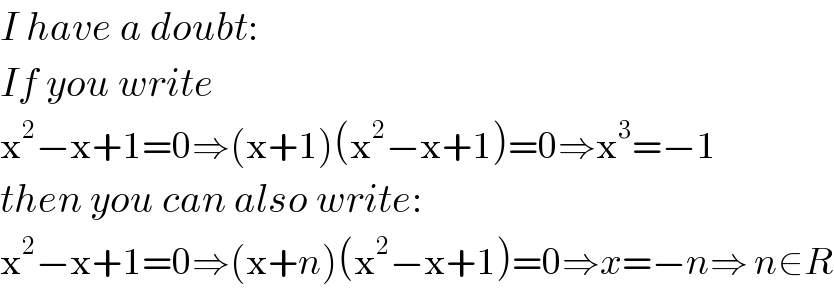
Question and Answers Forum
Question Number 66058 by arvinddayama01@gmail.comm last updated on 08/Aug/19

Commented by Prithwish sen last updated on 08/Aug/19

Commented by $@ty@m123 last updated on 08/Aug/19

Commented by Prithwish sen last updated on 08/Aug/19

Commented by Prithwish sen last updated on 09/Aug/19

Commented by $@ty@m123 last updated on 09/Aug/19

Answered by $@ty@m123 last updated on 08/Aug/19

Answered by afjyormathchamp@gmail.com last updated on 08/Aug/19

